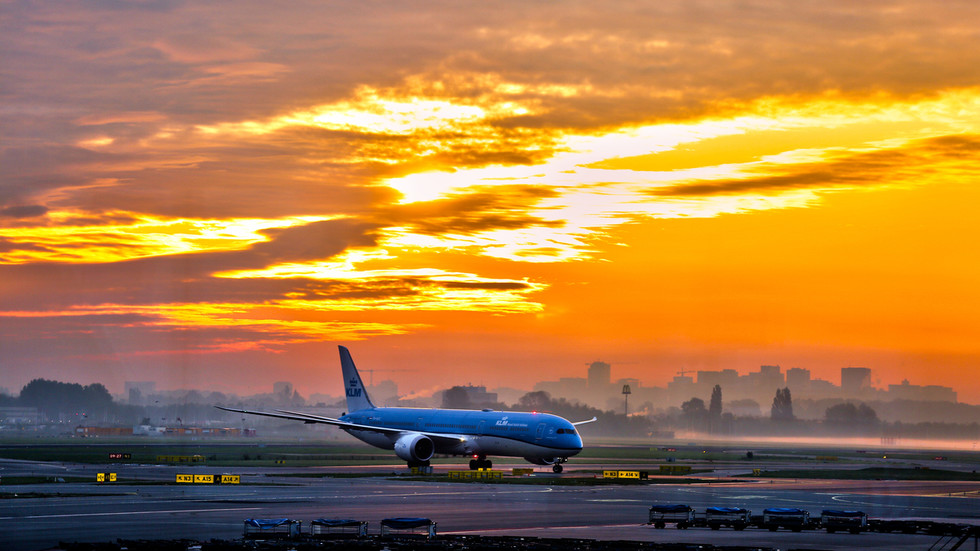In a recent discussion, KLM’s CEO, Marjan Rintel, highlighted the challenges faced by European airlines due to the unintended consequences of the EU’s sanctions against Russia. Following the escalation of the Ukraine conflict, Western nations closed their airspace to Russian airlines, leading to retaliatory restrictions from Moscow that banned aircraft from what it terms “unfriendly nations.” As a direct result, airlines like KLM have had to reroute their flights, which not only increases fuel consumption but also significantly raises operational costs. Rintel pointed out that while European airlines are restricted from traversing Russian airspace, Chinese airlines continue to operate freely, allowing them to save substantial flight time—between two to four hours—which translates into competitive pricing advantages adversely affecting European carriers.
Understanding the implications of this competitive disparity, Rintel urged the European Commission to take proactive measures to level the playing field. She suggested that the EU should explore financial adjustments or other alternatives to recalibrate the competitive environment between European airlines and those from China that can benefit from shortcuts through Russian airspace. The CEO’s comments reflect a growing concern within the European airline industry, as the challenges imposed by political sanctions and international relations have created unique obstacles for maintaining profitability and efficient operations. Rintel’s plea emphasizes the need for coordinated efforts from Brussels to ensure that European airlines do not continue to bear the brunt of geopolitical tensions.
In a move to mitigate the financial strain caused by increasing operational costs, KLM is implementing austerity measures aimed at generating annual savings of €450 million (approximately $494 million). Among these measures, Rintel specifically mentioned the intention to save €100 million by modifying in-flight catering services. The airline is also grappling with labor challenges, as the Dutch labor market is tightening and wages are rising, which adds another layer of difficulty compared to other countries such as France. This situation underscores the complexity of managing resources within the larger framework of the Air France-KLM group, illustrating the interconnected nature of the challenges facing European airlines.
Additionally, the impact of rising costs is not unique to KLM, as several European airlines have begun reevaluating their service routes in light of competitive pressures from Chinese and Gulf carriers that do not face similar airspace restrictions. For instance, Germany has considered halting its daily Frankfurt-Beijing flights and British Airways has decided to suspend its London-Beijing flights starting in October. The decisions by these airlines indicate a broader industry trend, reflecting the shifting landscape of aviation where financial viability is becoming increasingly precarious amid geopolitical uncertainties.
The situation illustrates how the intersection of international relations and global commerce can directly affect operational strategies within the aviation sector. With Chinese airlines capitalizing on access to Russian airspace, the competitive imbalance created by Western sanctions raises concerns over the long-term sustainability of European airlines. Rintel’s statements and the reactions from other airlines underscore the urgency for a collective response from regulators in Europe to address these disparities and support the regional aviation industry against external market pressures.
Ultimately, as the airline industry navigates this complex environment, the need for innovation, flexibility, and strategic adjustment becomes apparent. KLM’s austerity measures and the reconsideration of routes by other major European carriers represent necessary adaptations to ensure their financial health amidst rising costs and competition. As businesses respond to these challenges, it becomes crucial for policymakers to intervene and foster a level playing field that not only benefits the airlines but also maintains healthy competition in international travel for consumers. The future direction of the European aviation market will hinge on the interplay between operational adjustments made by airlines and the supportive actions taken by regulatory bodies in response to the evolving geopolitical landscape.

